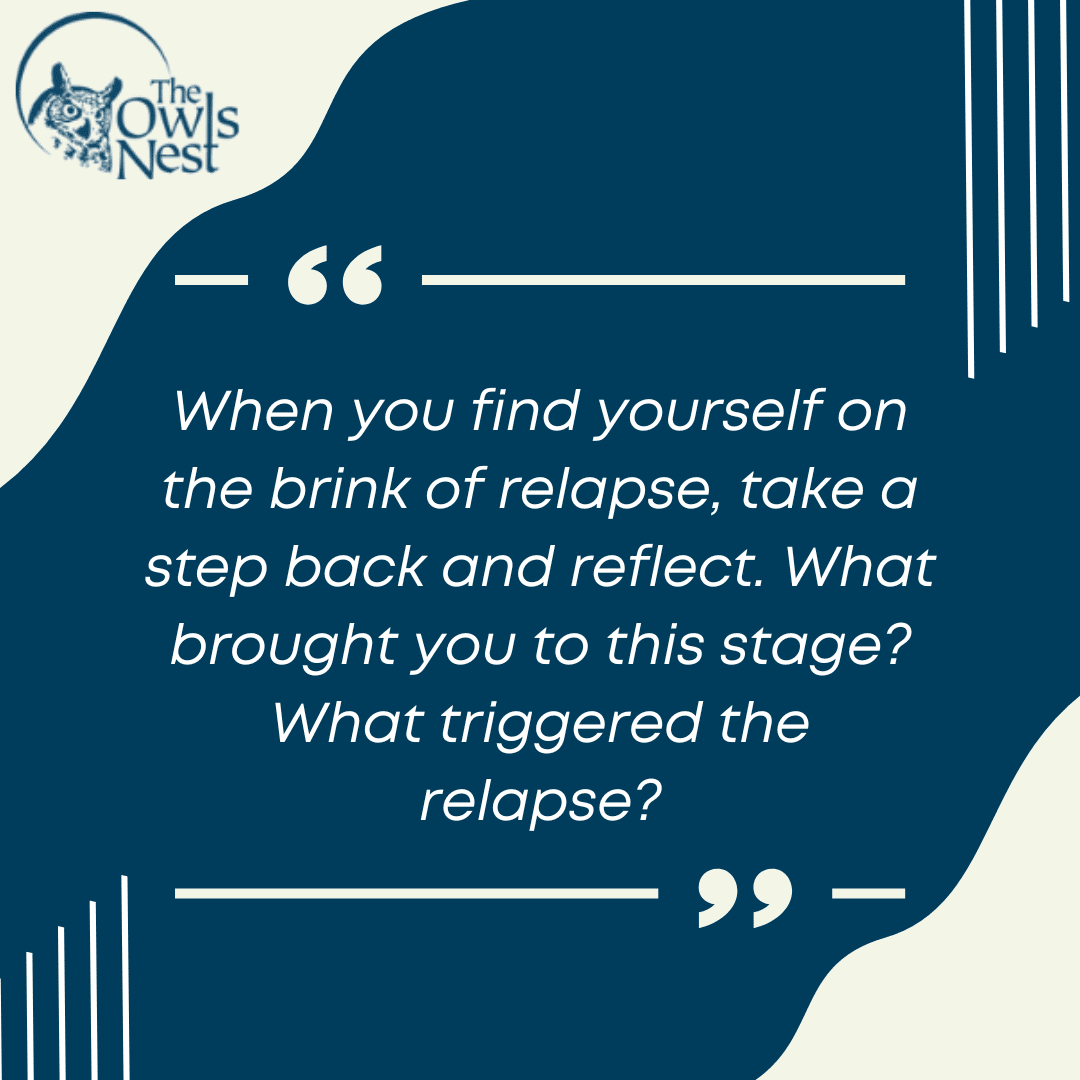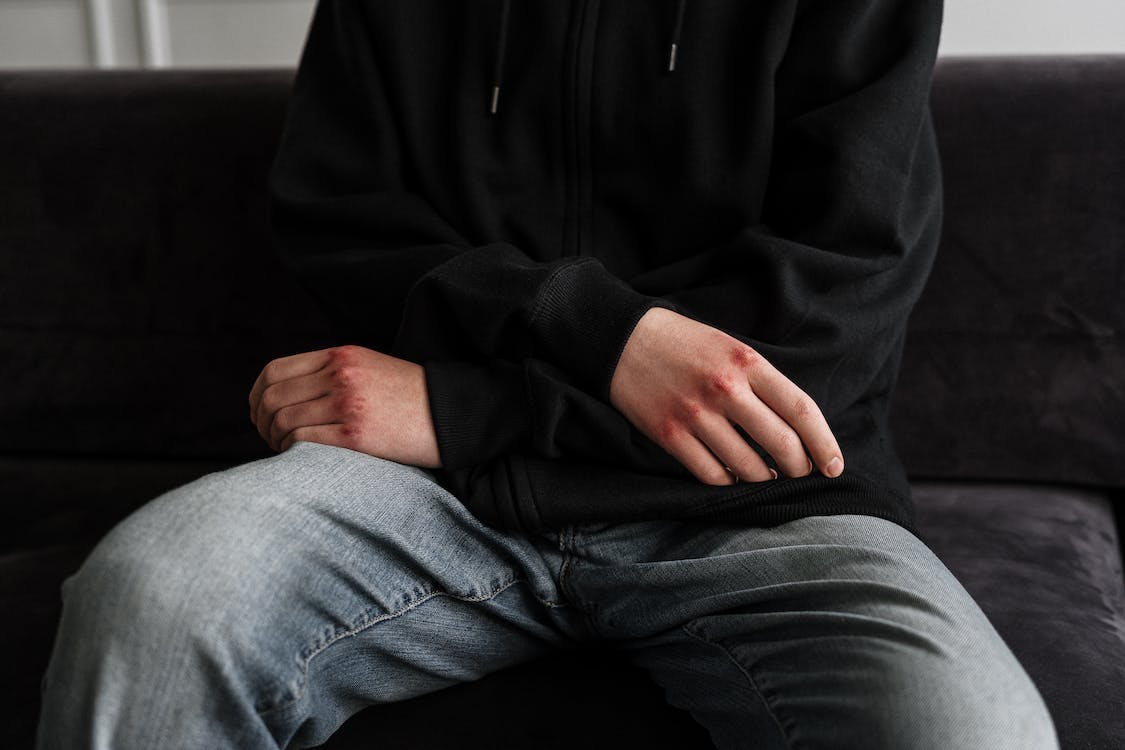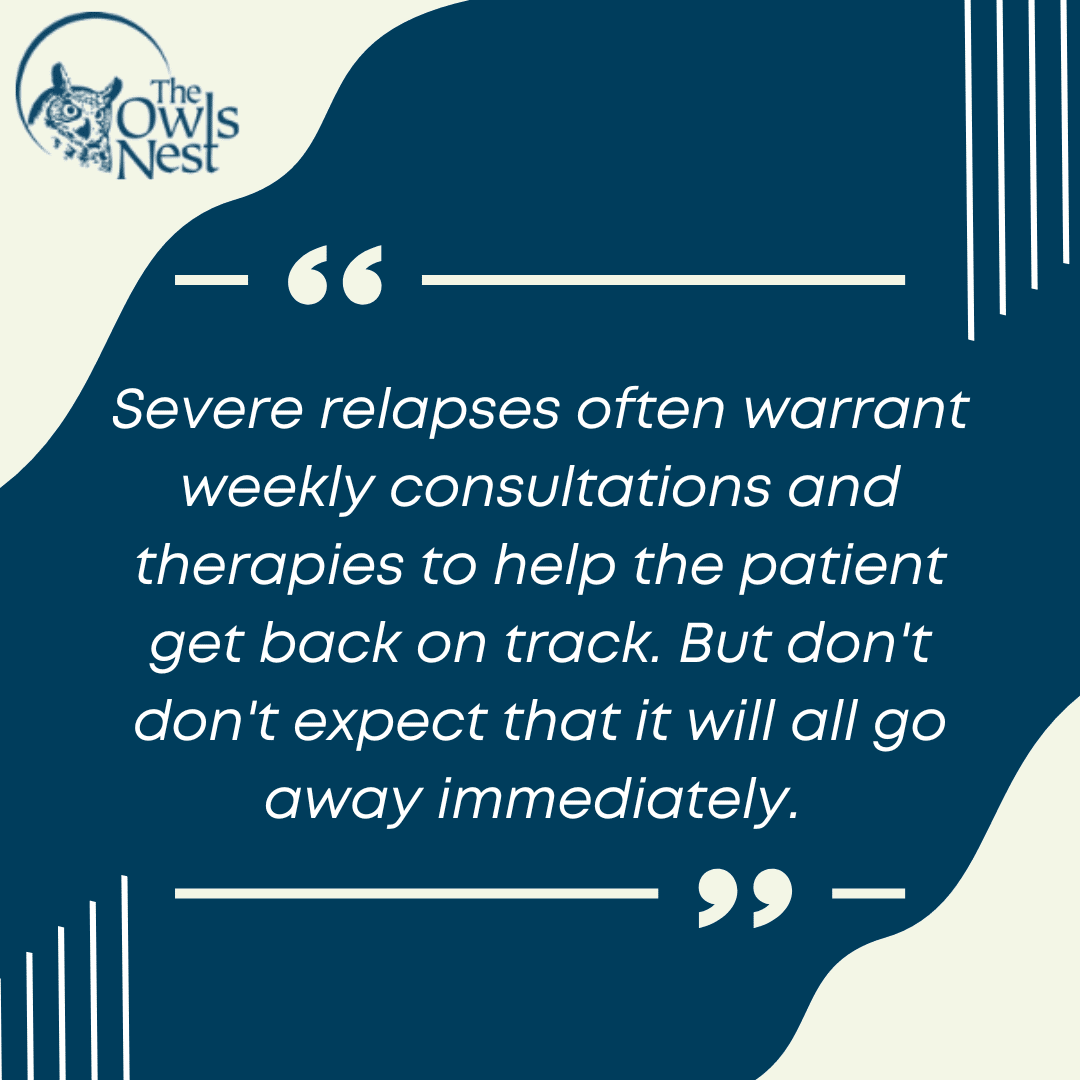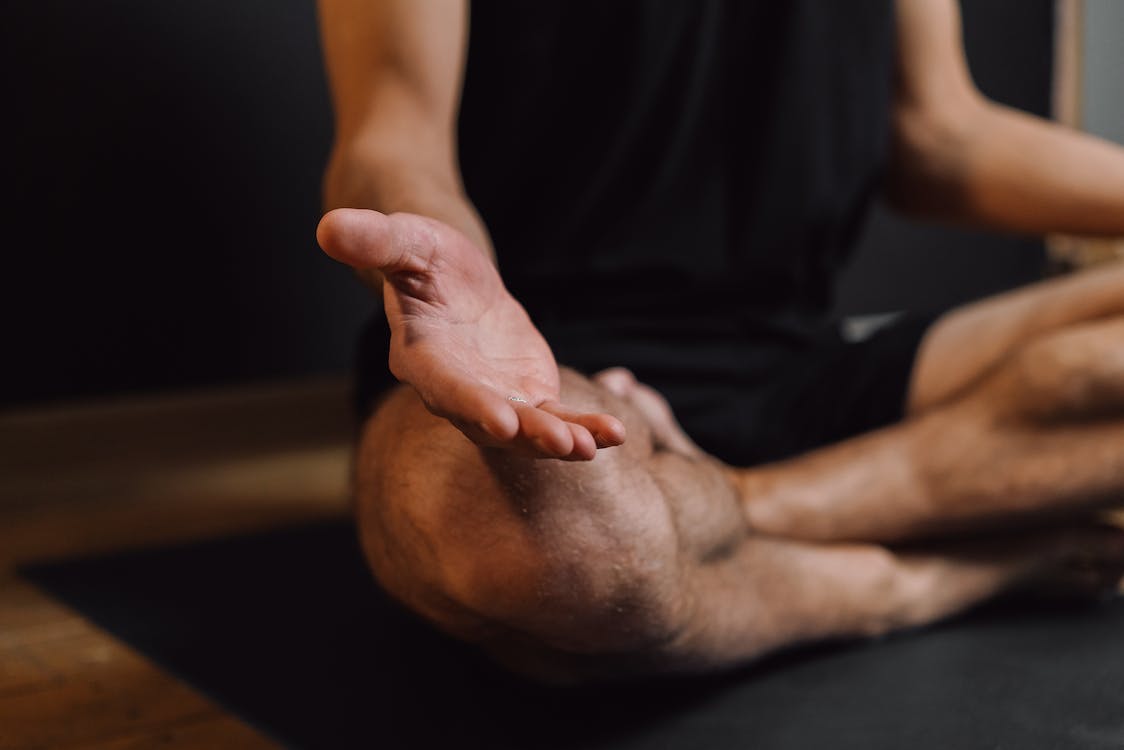Knowing what to do after relapsing is crucial in long-term recovery. If you’ve recently experienced a relapse in your recovery journey, you should know that you’re not alone. Many people who are also trying to recover from substance abuse have relapsed. What’s important is knowing what to do afterward.
A relapse is the recurrence of addiction to a particular substance after remission. There are different stages in a relapse. The first stage is emotional relapse. This stage puts the recovering patient at a higher risk of returned use.
The second stage is mental relapse. During a mental relapse, the thought of using the substance resurfaces in the person’s mind. The feelings and memories of the abused substance also resurface, leading to physical relapse—the last stage.
If you or your loved one is experiencing relapse at any stage, don’t think of it as a failure. It’s part of the recovery journey. Here are some tips you can follow when you experience a relapse.

Sit Back and Reflect
The most common cause of relapse is stress. It leads to physical and emotional responses that can either positively or negatively affect a person. The first response is usually fight or flight when a person feels stressed.
Stress can diminish a recovering addict’s ability to resist relapse. Left unchecked, it can act as a wrecking ball for a person with a weak mental fortitude. When you find yourself on the brink of relapse, take a step back and reflect. What brought you to this stage? What triggered it?
If your loved one relapses, support them. You should know what to do when this occurs. As much as possible, try not to blame them for relapsing. Don’t bring up past mistakes. And most importantly, don’t leave them. Relapsing is not a one-time event. It can take days or weeks. Be your loved one’s anchor during these trying times.
Stay Away from Triggers
Staying away from triggers is the foremost rule of relapse prevention. If other people influence you with addictive substances, stay away from them. If a particular place makes you remember a traumatic memory that led you to addiction, stay away from that place. Recovery is a gradual process. You can’t expect yourself to face your demons head-on right after treatment. Moreover, don’t expect that you’ll be 100% healed after treatment.
It will take some time before you can fully face your demons. But while you’re still picking up the pieces, it’s best to stay away from triggers. However, you can’t stay scared forever. Sooner or later, you’ll have to face your fears and traumas.

Take Responsibility for the Relapse
Taking responsibility for relapse is one way of recognizing that it occurred. The main reason why relapse worsens is that patients tend to avoid this topic. This occurs because the mind is healing. When you develop substance addiction, it takes months or years before the addiction worsens. The exact timeframe also applies to recovery. It will also take time before you recover from it, and relapses are bound to happen.
Taking responsibility means enforcing self-discipline. If you relapsed, you need to recognize it as a lapse of self-control. Don’t suppress it but acknowledge its presence in your life. That’s the only way you can regain self-discipline and restart your journey to recovery.
Visit Your Psychiatrist for Professional Support
After a patient finishes a treatment program, they are required to visit their psychiatrist once a month or as needed. But seeing your psychiatrist can prevent the relapse from worsening if you think you’re relapsing. However, don’t expect that one visit will make it all go away. As said in the previous section, it takes days or weeks, depending on its seriousness.
Severe relapses often warrant weekly consultations and therapies to help the patient get back on track. Your psychiatrist might require you to see them several times a month. If the relapse is not that serious, it can be twice or thrice per month. But if the recovering addict returns to their old ways, treatment can be a viable option.

Consider Treatment if the Relapse is Serious
Going back to treatment should be the last resort. Treatments cost money and can interrupt work, school, or other obligations. There are outpatient programs, but they still require constant commitment from patients to attend outpatient sessions outside work or school hours. However, you shouldn’t feel bad if your relapse leads to another round of treatment.
Entering treatment again can help reinforce the steps needed on what to do after relapsing. If this is your first significant relapse, take this as a learning opportunity to learn from your mistake. If this is the second or third time, consider treatment as a retreat from life. Use this opportunity to rediscover yourself and find the causes within you.
Seek Community Support
Assuming the relapse is not that serious, your psychiatrist may recommend that you attend 12-step meetings regularly. Sometimes, people relapse because they feel alone in their recovery journey. This feeling of loneliness creates stress which can trigger negative memories and cause a relapse. Immersing yourself with people going through the same journey can help reinforce your self-confidence.
Attending 12-step meetings can help you meet new people. Hearing their stories can bring hope and encouragement to your recovery journey. Moreover, you get to share your story, so it’s like a release that can unburden you. If you don’t want to go back to treatment, attend 12-step meetings first and see if they can help you.

Conclusion
These helpful tips discussed above can give you an idea of how to cope and fight back after a relapse. However, it’s best to find coping techniques that are effective and healthy. Relapses are expected in the recovery process. While experiencing them is not the most pleasant thing, conquering them is a feat and a lifetime achievement.
Need professional help for you or your loved one? The Owl’s Nest is here for you. Here you can get the help you need in a privately owned outpatient substance abuse treatment center. Make an appointment now by calling (843) 755-6354 or use the contact form.

Comments